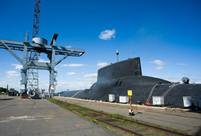

BEIJING, July 3 -- The economy is expected to meet the annual GDP growth target of about 7 percent thanks to a string of supporting measures, according to analysts.
Premier Li Keqiang reaffirmed that continued macro-economic regulations and a campaign to promote innovation and entrepreneurship would ensure the country hit this year's growth target. He was speaking at the Organization for Economic Cooperation and Development on Wednesday.
The World Bank has an optimistic outlook on China's economic growth. It expects GDP growth to reach 7.1 percent in 2015, reflecting a growth trajectory that is slower but more balanced and sustainable, according to its China Economic Update released Wednesday.
"In the short term, the slowdown in China's economic growth means the government is making inroads with structural adjustments and policy efforts to address financial vulnerabilities. Over the medium term, these efforts will help China gradually shift its growth model from manufacturing to services, from investment to consumption, and from exports to domestic spending," said Karlis Smits, senior economist and main author of the report.
China's economic activity remains constrained by overcapacity in heavy industries, decelerating export growth and regulatory tightening on nontraditional lending. The real estate sector remains weak, with excess inventory and, in most cities, softening property prices.
However, growth in services stayed robust, especially in banking and insurance, and consumption has grown slightly faster than investment.
The government still has ample tools to arrest further slowdown.
The central bank cut the benchmark rate by another 25 bps, along with a targeted RRR cut last weekend, the third time this year. Monetary easing this year should contribute to a pick-up in growth in the second half, according to a research report released by UBS.
Following the outright easing during the past half of year and given the already abundant short-term liquidity, UBS believe that monetary easing may evolve to focus more on improving monetary transmission channels and directing more funding to the real economy.
Meanwhile, the government has prescribed an investment boost to help steady economic growth.
The top economic planner Tuesday announced it would accelerate development of the urban rail networks and logistics services.
China has invested more than 3 trillion yuan (about 500 billion U.S. dollars) in seven major infrastructure projects this year.
To keep the economy on the right track, Smits recommends a better allocation of credit, which in turn requires financial sector reform.
"The investment-driven growth model helped China's economy take off, but reform measures are needed to enable the financial system to support sectors that can maintain reasonable growth over the medium-term," Smits added.
 Creative graduation caps of ‘vigorous elves’
Creative graduation caps of ‘vigorous elves’ Hong Kong in lens
Hong Kong in lens Typhoon class strategic Submarine in photos
Typhoon class strategic Submarine in photos Hong Kong college students feel the charm of Hanfu
Hong Kong college students feel the charm of Hanfu Japan’s crimes committed against "comfort women"
Japan’s crimes committed against "comfort women" Odd news:“carrying a rod and asking to be spanked”
Odd news:“carrying a rod and asking to be spanked” Legendary life of a bee-keeping master in Hainan
Legendary life of a bee-keeping master in Hainan 4-year-old cute 'monk' spends summer holiday in temple
4-year-old cute 'monk' spends summer holiday in temple College graduates shining on the red carpet in Nanjing
College graduates shining on the red carpet in Nanjing Pledging allegiance reinforces Constitution
Pledging allegiance reinforces Constitution  Market falls amid fears about unregulated margin lending
Market falls amid fears about unregulated margin lending  Mass wedding for North Korean defectors held in Seoul
Mass wedding for North Korean defectors held in Seoul  Orthodox Church sees opportunities in China following enhanced Sino-Russian ties
Orthodox Church sees opportunities in China following enhanced Sino-Russian tiesDay|Week